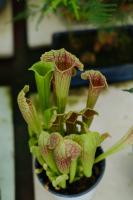Introduction
Water is an essential element for all living organisms, and plants are no exception. Plant cells require water for various biological processes, including a fundamental process called photosynthesis. Photosynthesis is the process that allows plants to make their own food, and without it, they cannot survive. This article explores the reasons why water is necessary for all plant cells.
Role of water in photosynthesis
Photosynthesis is a process that takes place in the chloroplasts of plant cells. It involves the conversion of light energy into chemical energy that can be used to synthesize glucose from carbon dioxide and water. This process requires water, which is broken down into hydrogen and oxygen by the energy absorbed during photosynthesis. The hydrogen is then used in the production of glucose, and the oxygen is released as a by-product.
Transportation of nutrients and minerals
Water plays a crucial role in the transportation of nutrients and minerals within plant cells. It is absorbed by the roots of the plant and transported through the xylem vessels to the leaves and other parts of the plant. The nutrients and minerals that are dissolved in the water are also transported along with it. This process is essential for the growth and maintenance of plant cells, and without water, it cannot occur.
Maintaining cell turgor pressure
Water is also critical in maintaining the turgor pressure of plant cells. Turgor pressure is the pressure that exists within the cell, pushing against the cell wall. This pressure is necessary for the plant to maintain its shape and structure. When a plant cell loses water, the turgor pressure decreases, causing the cell to shrink and eventually die. As such, water is necessary to maintain the turgor pressure of plant cells, ensuring their survival and proper functioning.
Dissolving substances for absorption
Water is also necessary for the absorption of certain substances in plant cells. For example, some nutrients and minerals are not soluble in the cell's cytoplasm, but water can dissolve them, making it easier for them to be absorbed and used by the cell. Additionally, many metabolic processes within plant cells require the use of enzymes, and these enzymes function best in a watery environment.
Conclusion
In conclusion, water is essential for all plant cells for a variety of reasons. It is required for photosynthesis, the transportation of nutrients and minerals, maintaining cell turgor pressure, and dissolving substances for absorption. Without water, plant cells cannot survive, and plants as a whole cannot thrive. Therefore, it is crucial to ensure that plants have access to adequate water supplies for their growth and survival.

 how many times do yo...
how many times do yo... how many planted tre...
how many planted tre... how many pine trees ...
how many pine trees ... how many pecan trees...
how many pecan trees... how many plants comp...
how many plants comp... how many plants can ...
how many plants can ... how many plants and ...
how many plants and ... how many pepper plan...
how many pepper plan...






























